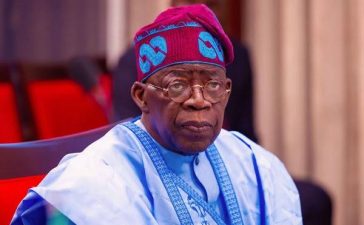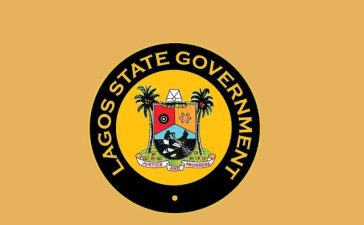In the face of growing economic instability and mounting debt, Mali’s military government has resorted to an aggressive financial tactic—forcing a large payment from one of its few remaining investors.
The junta, which has been in power since the 2021 coup, is grappling with a severe cash crunch, and has turned to bold measures to secure much-needed resources as international financial support continues to dwindle.
After a series of economic sanctions imposed by Western nations, Mali’s military leaders have found themselves increasingly isolated from the international community.
Their latest move underscores the junta’s desperation to obtain cash as it faces not only external pressure but also internal economic difficulties exacerbated by armed insurgencies in the country’s north and center.
Mali’s Financial Crisis Deepens
Mali has long been facing a financial crisis, worsened by the military takeover in 2021. Since the coup, Mali has experienced sanctions from key international bodies such as the European Union (EU), United Nations (UN), and West African regional bloc ECOWAS.
The sanctions, including trade embargoes and travel bans, have severely impacted the country’s foreign direct investment (FDI) and its ability to borrow from international markets.
Additionally, the junta has alienated former allies, including France, which withdrew its forces after the coup and suspended military and development aid.
The United States has also scaled back its involvement, including military aid, and the World Bank and International Monetary Fund (IMF) have suspended financial assistance.
With limited access to international funding, the junta has increasingly relied on foreign investors in sectors such as mining, energy, and agriculture to secure cash injections.
However, these investors have grown hesitant to deepen their engagement in a country plagued by violence, instability, and uncertainty.
The Bold Move: Extorting a Payment
To shore up its finances, Mali’s military government has reportedly forced one of its few remaining investors—a foreign mining company or another strategic partner—into making a significant payment.
The details surrounding this forced transaction remain murky, but it is believed that the junta is seeking to leverage resources or future investments in exchange for immediate cash.
This move is part of the junta’s broader strategy to secure funds to continue its military operations, including combating the insurgent groups that have been wreaking havoc in northern and central Mali.
The mining sector, a major contributor to Mali’s economy, has remained active despite the political turmoil.
The country is one of the largest producers of gold in Africa, with significant investments from companies operating in the region.
However, the junta’s aggressive demands have raised concerns among international partners, particularly those with long-term interests in resource extraction in Mali.
It is unclear whether this payment is a one-time demand or part of a broader strategy to force additional payments from other investors.
However, experts believe this tactic could drive away potential investment and further deter capital flows into the country, exacerbating the economic crisis.
International Reactions: Growing Concern
The junta’s aggressive tactics have already drawn criticism from the international community. Analysts fear that the coercive approach could further alienate foreign investors and worsen Mali’s economic situation.
Foreign companies that have remained in Mali, particularly in the mining and energy sectors, are increasingly nervous about their operations and the long-term security of their investments.
There are concerns that this move could trigger capital flight, as companies may choose to relocate their operations to more stable and investor-friendly regions in Africa.
This, in turn, could lead to job losses and a decrease in economic output, particularly in a country where gold exports make up a significant portion of national revenue.
The United Nations, European Union, and United States have expressed concern over Mali’s financial situation and the junta’s growing authoritarianism.
Many of these bodies are likely to view the forced payment as another indication of the junta’s disregard for democratic norms and economic transparency.
Mali’s Diplomatic Isolation and Debt Woes
Mali’s growing diplomatic isolation is compounded by its increasing debt burden. As the junta struggles to finance its military activities and meet debt obligations, it is likely to face further pressure from international creditors.
The World Bank, the IMF, and other lenders are unlikely to resume financial assistance unless Mali’s leadership makes significant concessions, particularly regarding political reforms and human rights concerns.
The junta has also faced pressure from the Economic Community of West African States (ECOWAS), which has imposed a range of sanctions on Mali in response to the military coup and subsequent delays in holding elections.
These measures have disrupted Mali’s access to much-needed financial assistance and investments, putting the country’s long-term economic stability at risk.
The Path Forward: A Dangerous Gamble
Mali’s military government is gambling on its ability to secure enough funding from a handful of remaining investors to stave off an economic collapse.
However, this strategy could backfire, as it risks alienating future investors and further deepening the country’s economic woes.
If the junta continues to engage in aggressive financial practices such as extorting payments, it may find itself further isolated, both diplomatically and economically.
As global investors become more cautious, Mali’s long-term growth prospects could be severely hindered. The junta’s refusal to engage in dialogue with international partners or pursue economic reforms could lock Mali into a vicious cycle of debt, financial instability, and political unrest.
Mali’s military junta is now in a precarious situation, with its aggressive financial tactics likely to have long-term consequences for the country’s economic future.
While it may have secured short-term cash injections, this approach risks alienating key investors and further isolating the country from the international community.
With growing debt, diplomatic isolation, and mounting insecurity, Mali faces a difficult road ahead.
The junta’s reliance on coercive measures to secure financial support may prove to be a dangerous gamble, with economic collapse and further instability potentially on the horizon.







